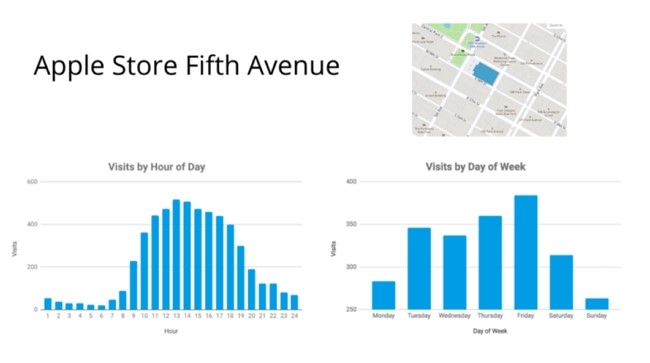
This is the sort of report managers in major retail shops look at weekly. Now, understanding foot traffic is excellent for retailers. Knowing how many people enter your shop can give you a lot of information. This is commonly called your footfall. Let's dive into it and see how it can benefit your business.
Why People Counting Matters
People counting technology provides valuable insights that can help retailers. The primary use is to determine the correlation between foot traffic and sales. Let's explore four results.
High Foot Traffic, Low Sales
-
Analysis: Many people are entering your store, but sales are not happening for this traffic.
-
Possible reasons:
-
Your stock is not what the people drawn to your shop are looking
-
Often, this is caused by not having enough staff.
-
Unengaging store layout or customer experience.
-
-
Actionable insights: Review product placement, marketing strategies, and store layout to identify areas for improvement.
Low Foot Traffic, High Sales
-
Analysis: Fewer people enter your store, but sales are higher than expected.
-
Possible reasons:
-
Targeted marketing campaigns are attracting the right people.
-
Effective product placement and inventory management.
-
Engaging store layout and customer experience.
-
-
Actionable insights: Continue refining marketing strategies and focusing on customer experience and product placement. Consider how to get more of these people.
High Foot Traffic, High Sales
-
Analysis: Many people are entering your store, and sales are strong.
-
Possible reasons:
-
Effective marketing campaigns and promotions.
-
Engaging store layout and customer experience.
-
Good product placement and inventory management.
-
-
Actionable insights: Well, clearly, you are doing the right thing.
Low Foot Traffic, Low Sales
-
Analysis: Fewer people enter your store, and sales are lower than expected.
-
Possible reasons:
-
It would be best if you considered how to get more people into the shop
-
Poor product placement or inventory management.
-
Unengaging store layout or customer experience.
-
-
Actionable insights: Review marketing strategies, product placement, and store layout to identify areas for improvement and develop targeted campaigns to attract more customers.
It also gives other information.
Understand Foot Traffic Patterns:
- Analyse the number of people entering your store to identify peak hours, busy periods, and slow days.
Optimise Staffing and Inventory:
- Use foot traffic data to adjust staffing levels, manage inventory, and restock shelves during peak periods.
Account for External Factors:
- Understand how weather, sporting events, and other external factors impact foot traffic.
Types of People Counting Technologies
There are two main types of technology used by my clients
Beam Sensors
Beam sensors are the earliest, cheapest, and simplest people traffic counters. They consist of an infrared emitter and detector positioned on either side of a doorway. When a person walks in or out, the beam breaks, and the counter registers a count.
Pros:
- Simple and Cost-Effective: Break beam sensors are cheap and easy to install.
Cons:
- Unidirectional: They can't distinguish between people entering and exiting.
- Barrier Perception: The beam can act as a barrier, making some customers reluctant to enter.
- Accuracy Issues: They may count two people walking together as one, making the results questionable in a full shop. Also, they tend to miscount families and people with prams.
WiFi Counters
These use the WiFi signals from smartphones to detect and count people. This technology is said to be more accurate as almost everyone carries a smartphone.
Pros:
- Accurate and Advanced: Most people have smartphones, providing reliable counts.
- Hidden: No one knows that you have them. This has proven to be a huge plus.
- Advanced Capabilities: Potential to identify repeat visitors or known shoplifters and exclude staff from counts. For privacy reasons, few do this, though.
Cons:
- Higher Cost: WiFi counters are more expensive.
- Bluetooth Dependency: Individuals may not be counted if Bluetooth is turned off. This is a big problem.
- Overcounting: Many people today have smartwatches. These can be counted twice.
Overall, I think Beam is better, but many would disagree.
Integration: Manual vs. Automated
When it comes to integrating people counting technology with your POS system, there are two main approaches:
Manual Integration: Most small retailers opt for manual integration. Each morning, they check the people counter, record the number, reset it, and then enter the data into a spreadsheet. While this method is cost-effective, it has a significant downside: It's messy, time-consuming, and does not give hourly traffic data.
Automated Integration: Although more expensive, investing in an integrated solution provides continuous, real-time data. This allows for detailed foot traffic analysis by the hour, offering deeper insights for better decision-making. I think the extra cost is worth it.
Conclusion
People counting technology is a powerful tool for small retailers. It provides invaluable data to enhance staffing, inventory management, marketing strategies, and overall store performance.
If you consider this technology to unlock the power of people counting technology for your business, worth investigating, please get in touch with us to learn how people like yourself use it to help their retail businesses.


